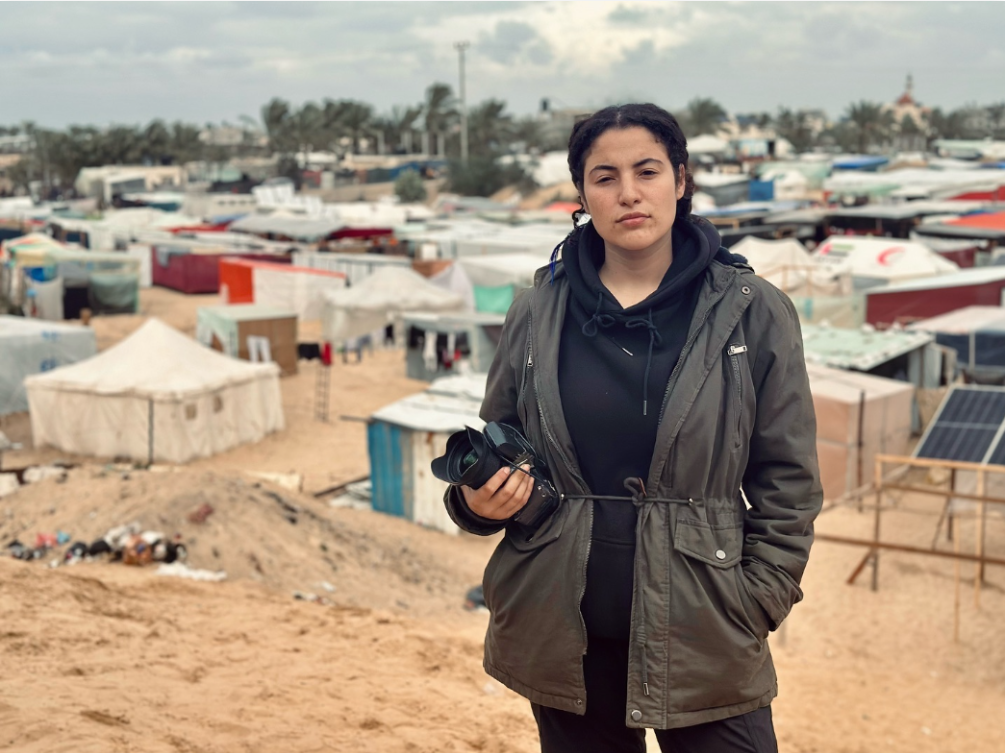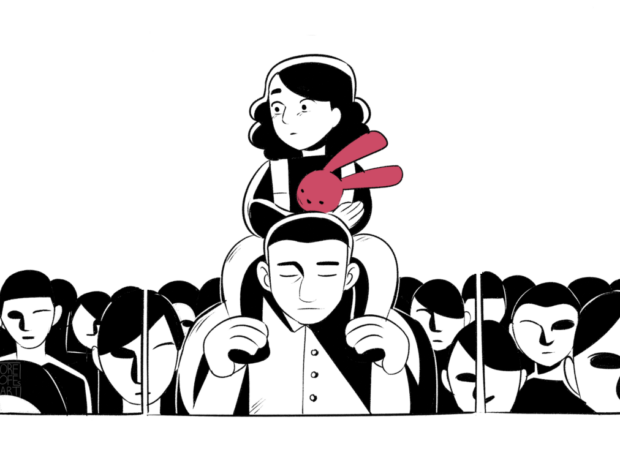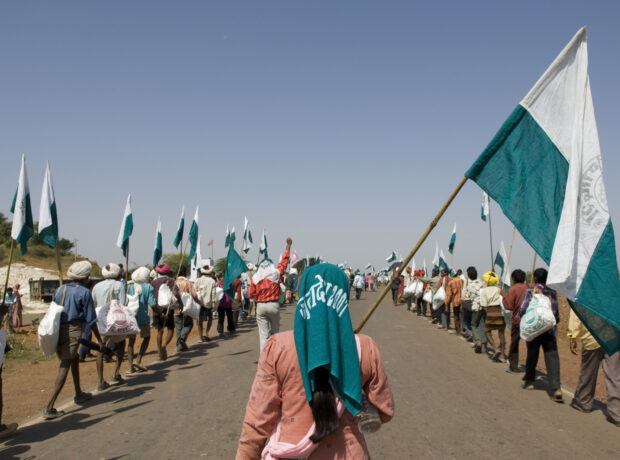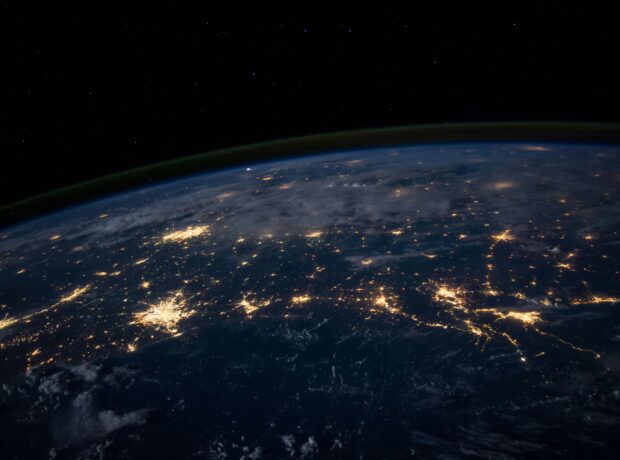This tribute to Bisan Owda, Palestine’s cultural vlogger turned war journalist, was written by Eli Langfere, an undergraduate student of the Warwick Writing Programme, as the joint-winning response to the annual Lacuna Writing Competition.
Phone screens and social media. That is the space in which we watch the violence of Israel’s attack on Gaza. The average UK civilian can witness widespread atrocity more intimately than ever before in history: watch a hospital bombed from the safety of your bed, watch bodies sprawled from the casual scroll over breakfast, watch Bisan Owda transition from twenty-five-year-old cultural vlogger into a war photographer.

Bisan before the war and after. Left: “Once upon a time…on a boat ride on my beautiful city”. Right: “This might be our last call…Gaza is completely collapsing!”
Between the Israeli internet cuts and Instagram’s censorship (muting Bisan’s videos as she narrates the war) of Palestinian witnesses to war crimes, Bisan shares the horrors before her – the first bombing of Al Shifa hospital. Despite the crack in her voice and the howl from the back of the throat, she reports what she sees, calling towards the atrocity before her, and to us: “It’s a massacre!”
View this post on Instagram
The splitting of her world is navigated through her footage, and she speaks in clear English with the warm swell of her Palestinian Arabic accent. In her video entitled “Emptying Gaza”, we see Bisan hold up the papers dropped onto Gaza from Israeli war planes, ordering Palestinians to flee carpet bombing. She explains the geography of Gaza, the impossible exodus routes away from violence, her finger pushed against the words.
View this post on Instagram
Here she shows us the queue for water, there she shows us the gap in a tent, a little child smiling through. The weight drips off her face as October ends. November, December, January rolls by, and every day Bisan is in the screen, starting each video with “Hey everyone, this is Bisan from Gaza, I am still alive.” The words themselves a protest against Israel, and an informative, verbal hook to the viewer, moulding her skills as a social media influencer to approach war reporting.
View this post on Instagram
Cut to an apartment block crumbled in ashy grey and tears down Bisan’s face, her office destroyed, the space that nurtured her career and creativity gone. This studio was the physical space where Bisan formed her online presence. Though Israel destroyed the building, Bisan’s creative force remains intact on social media.
Before this war, she shared Palestinian natural beauty, food, farming, cities; shared travels in Italy, Egypt, Brussels, Lebanon; promoted women’s presence in politics. But primarily, Bisan celebrated her love of Gaza and Palestine. “Palestine – Gaza My Home Forever” captions a video of Bisan standing proudly, gazing over green fields, filming native plants, walking through orchards. When Bisan shares her love for her home, she advocates for the rights that Palestinians have to their land.
View this post on Instagram
Next a picture of her white cat, stretched in the sun, now missing beneath the rubble, in Palestinian heat. She shows us her memories of her grandfather’s farm, destroyed by Israeli military strikes in 2007. Flickering before us an image of her as a child here, then a young woman working and creating, then a press vest.
Radio silence for over twenty-four hours. Then, at 07:17, Thursday 9 November, she posts on her broadcast channel that subscribers have access to on Instagram. In both English and Arabic: “You need to talk about the ground invasion!! The Israeli army is 1-2km far from us!”
At least 30,000 Palestinians have been killed by Israel since October 7. Bisan Owda lives. She describes her second evacuation due to the ground invasion. Tanks crushing in. Israeli soldiers, eyes glazed over, blinking from under those helmets, holding kids up at gun point in primary schools. Bisan’s bed is surrounded by flowing linen walls outside Al Shifa hospital, turned refugee centre, now abandoned. She returns to the road as Israeli bombs scar the hospital beds of children and bury medics in debris.
Little fires burn to cook bread from the little remaining flour. They warm the night air under the sounds of war planes. Between the embers of these fires and the lights of the jets, there is no protection. But Bisan tells us, “no one can deprive these people their right to live.”
View this post on Instagram
Across the sea from Palestine, the thing separating us and them is a thin glass screen. Open your phone and the blood of the people leaks through. Members of the press who record the collective trauma of their own communities do so in vain if we are not here to watch. Let us be their echo chamber.
As of February 16, at least 99 journalists, mostly Palestinians, have been slaughtered since the Israeli invasion of Gaza on October 7. Bisan still speaks. All she has is her ability to show us.
Don’t look away.
View this post on Instagram
Featured image and all images and video via Bisan Owda
Read more:



